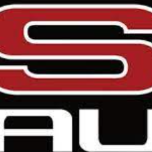Is Power (rwkw) Figure Everything? Why Are People So Hung Up On Kw Figures
Announcements
-
Latest Posts
-
By drifter17a · Posted
I have replaced everything on my r34 including suspension to Miester R, all rear subframe bushes to poly, all arms to metal adjustable and same in front. only thing I haven't touched is the front lower control arm. Should I? what improvement can i expect ? I mean the one on the link below? Car drives perfectly, it is just me thinking everything is either puly bush or hard bearing type so should also do lower control arm front but do I really need it ? https://www.japspeed.co.uk/product/suspension/adjustable-arms/nissan-200sx-s13-s14-s15-skyline-r32-r33-r34-adjustable-suspension-front-lower-control-arms/?gad_source=1&gclid=Cj0KCQiAo5u6BhDJARIsAAVoDWs5V_PauQPf0kx3zFCaA4tOC9Q7JSIsfJWma_jAPN2f1sJA686djOwaAidgEALw_wcB -
Thanks for the link.....but I'm still not totally understanding (a bit slow). So as long as the host unit supports carplay or android auto, you plug the unit to a USB C port, and then change the AV source? Does the unit run its own apps (eg I could run Real Dash or Torque etc) or does it rely on a host phone and just run Android Auto from the phone (which is very limited compared to full Android?). And, does the touch screen work for the apps? Only the bottom screen or the top screen as well? The 4g wifi looks like a good feature if you have kids with devices in the car (noting none of the versions seem to support 700mhz Telstra)
-
Mate, if Australian build quality was an eye opener, wait until you try a Chrysler. If you need space and fuel economy (and you don't want to hit the track) a fuga hybrid is the way to go. Similar power to the 400r (270kw), roomy, comfortable, good on fuel, great build quality
-
Um...self respect?
-
Um...that thing looks terrible. I'd be looking for replacements tout de suite. WTF is it made of? Die cast cardboard?
-


Recommended Posts
Create an account or sign in to comment
You need to be a member in order to leave a comment
Create an account
Sign up for a new account in our community. It's easy!
Register a new accountSign in
Already have an account? Sign in here.
Sign In Now